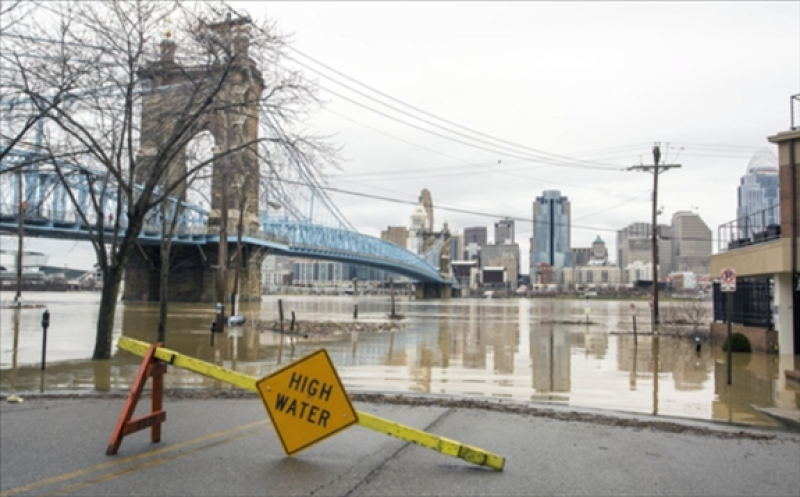New study from the University of Cambridge suggests seven per cent of global GDP could be wiped out by 2100 under business-as-usual carbon emissions scenario

The US and Canada looks set to lose more than 10 per cent of their Gross Domestic Product (GDP) by 2100 unless countries achieve the emissions goals set out under the Paris climate treaty.
That is the stark conclusion from a new study released yesterday by the University of Cambridge, which argues virtually every country, from the world's richest to poorest, stands to suffer a significant loss of income if climate change plays out as scientists expect.
The findings, published in the National Bureau of Economic Research, upend previous research suggesting wealthier nations in the Northern Hemisphere might be able to escape relatively unscathed throughout this century from the impacts of a warming world.
Instead, the analysis argues that if emissions continue to rise at their current rate average global temperatures are expected to reach more that 4C above pre-industrial levels degrees by the end of the century. It calculates that such drastic warming would lead to an average seven per cent drop in global GDP compared to a world where climate impacts do not take hold. Richer countries stand to lose as much as poorer nations, it concludes.
"Without mitigation and adaptation policies, many countries are likely to experience sustained temperature increases relative to historical norms and suffer major income losses as a result," said Dr Kamiar Mohaddes, co-author of the study from Cambridge University's economics faculty. "This holds for both rich and poor countries as well as hot and cold regions."
The team used data from 174 countries dating back to 1960 to assess the link between above average temperatures and incomes. They then modelled the effects of rising temperatures on future incomes.
Canada is warming at twice the rate of the rest of the world and will be one of the worst hit countries hit, according to the study, with a 13 per cent drop in GDP expected by the end of the century. Meanwhile, in the UK the recent heatwave is a sign of things to come, with productivity losses and severe disruption to critical transport infrastructure expected to become a common occurence.
Despite US Senator Marco Rubio's claims yesterday that the US will be able to adapt to the "manageable" risks posed by climate change, the researchers insist adapatation alone will not be enough for nations to prevent financial harm. Even if the speed of adjustment to a new climate is accelerated to within 20 years rather than 30 years, the US still stands to lose almost seven per cent of its economic value, the authors pointed out.
"The idea that rich, temperate nations are economically immune to climate change, or could even double and triple their wealth as a result, just seems implausible," Mohaddes concluded. "If advanced nations want to avoid major economic damage in the coming decades, the Paris Agreement is a good start."